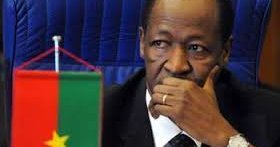They called it “Arab Spring” which was very significant in awakening the people. In the Arab spring, we should definitely take into consideration the impact of social media. While the world is getting more like a village, the flow of information becomes incredibly fast. An activist from Egypt clearly demonstrates how social media is influential; he announced, “We use Facebook to schedule the protests, Twitter to coordinate, and YouTube to tell the world.” That’s why through the Internet and the pace of information flows have become the biggest challenge for long serving leaders. People can easily reach any information through a variety of channels and they can easily share that information through those channels. The fire brought about the end of autocrats from Tunisia to Libya and from Yemen to Egypt. It was a historic moment in the transformation into democratic systems through the uprising of people. In this regard, the Arab Spring inspired people throughout other regions and is putting autocrats under pressure.
Burkina Faso has recently witnessed an uprising, which brought about the end of long serving leader Blaise Campaore. Although Burkina Faso gained its independence in 1960, afterwards the country had witnessed four military coups. The most crucial part of these coups is the people because they have never tolerated any undemocratic action. It can be seen from the first military coup, which happened in 1966. Bringing a single party system, inhibition of the opposition and the following unrest against the austerity plan of President Maurice Yameogo, triggered uprisings, which resulted in the resignation of President Yameogo. The civil society was always active and strong in Burkina Faso. The other military coup in 1980 came after mass protests as a result of favoritism and corruption. Like the earlier coups, the coup in 1987 came after economic problems in the country, which pushed people to protest. By the coup on October 15, 1987, Blaise Compaore seized power and kept it until 2014. He was known as a key ally of France, as a former colony. France supported President Blaise Campaore during the coup in 1987.
Apart from the uprising that started in 2014 throughout the country, it was not the first one that occurred during the Presidency of Blaise Compaore. The murder of the prominent journalist and activist Norbert Zongo was allegedly organised by the government and attempts to cover up it up caused mass demonstrations from 1998 till 2000. By the death of Norbert Zongo, different groups came together and called a general strike. When the demonstration had turned out to be a little more violent, President Blaise Compaore pledged reforms which resulted in limiting the number of terms a President could serve to two. This was added to the constitution in 2000, and the term lengths were reduced from seven years to five years. In fact this amendment was the essence the uprising in 2014.
The other protests were held in 2008 as result of rising living costs in the country. However throughout 2011, the country had witnessed several critical protests. President Compaore’s commitment not to run again for elections stopped the protests. The last protest started in October 2014 and was a historical moment for the country. The stability of Burkina Faso is seen as very critical for the stability of the region, particularly for the US and European Union. In this regard, from the beginning of the uprising, they have been keeping a close eye on any development in the country. The EU believes that the people in Burkina Faso have the right to decide their own future therefore they urge peaceful transition to civilian rule as soon as possible. On the other hand, the EU points out the significance of democratic, inclusive, and transparent elections. The EU also stated that they are ready to help Burkina Faso for the coming elections. Indeed, transition will allow Burkina Faso to continue keep its development and cooperation agreements with the international community.
In Burkina Faso and elsewhere, the rapid development in Information and Communication Technologies will be a huge challenge for autocrats because it makes it more difficult to control people. People can easily use different channels to speak to the rest of the world. In Burkina Faso, the Twitter hash tag “#lwili” was used for the describing the uprising in Burkina Faso by referring the traditional clothes of Burkinabe , Lwili Peendé. “#lwili” was an actively used hash tag, besides #Burkina, #AfricanSpring, and #Compaore were also actively used by the users on Twitter. Through Twitter the images of the protesters were shared. Even the ousted leader Campaore made an official statement on Twitter. It can be seen that social media is essential to these events. It is too early to say that it can spread to other African countries and start and African Spring however it will be difficult for other long serving leaders to stay in office in the near future. On the other hand, this might also bring a big problem for France as having colonial history in the region if this change sets a precedent for others in the region.

Follow the comments: |
|
